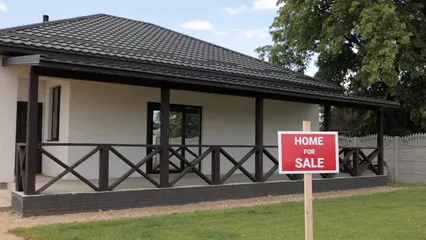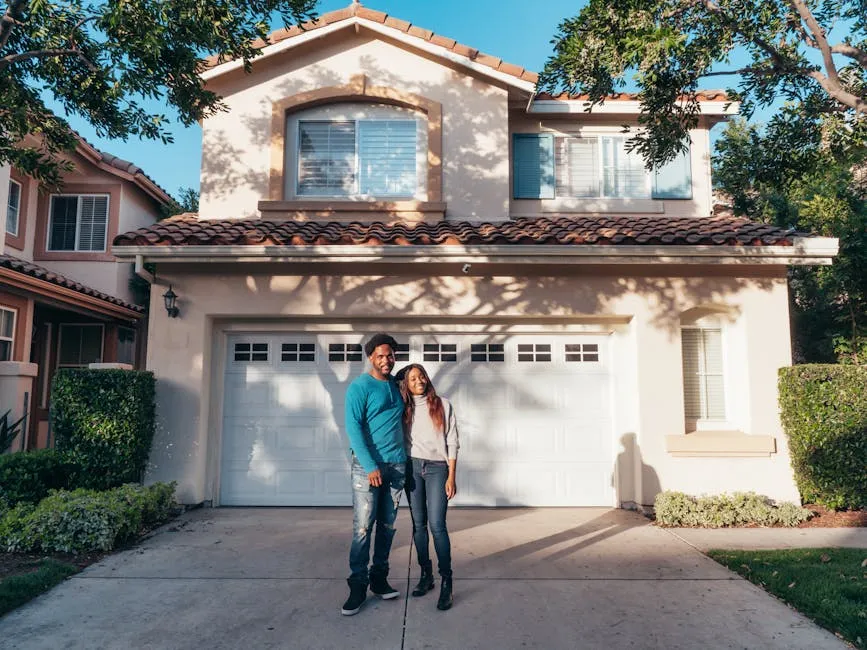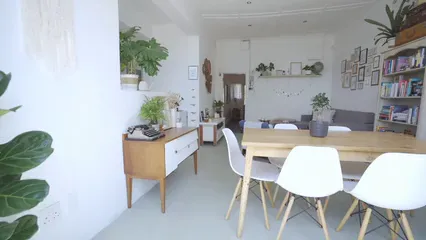
Why Would Anyone Buy a Leasehold Property?
Introduction
Leasehold properties are becoming increasingly popular among buyers. They offer a different kind of ownership experience compared to freehold properties. This article will explore the advantages of purchasing a leasehold property and why it might be a good choice for some buyers.
Summary and Overview
A leasehold property means you own the building for a set term, but the land belongs to a freeholder. In the UK, around 4.86 million homes are leasehold, mainly flats. In 2019, leasehold transactions accounted for 22% of residential sales. Many misconceptions surround leasehold properties, such as perceived lack of control or value. However, there are notable advantages and downsides. Understanding these can help you make an informed decision about your property ownership options.
For a deeper understanding of leasehold properties, check out the The Complete Guide to Buying Leasehold Properties. It offers insights that can help demystify the process and provide clarity in your decision-making.
What is a Leasehold Property?
A leasehold property is a type of ownership where you buy the right to live in a property for a predetermined number of years, typically 99 years or more. You don’t own the land; that remains with the freeholder. Ownership terms vary, and leaseholders usually pay ground rent and service charges. The key difference between leasehold and freehold is that freeholders own both the property and the land indefinitely, while leaseholders have temporary rights. Currently, leasehold properties make up approximately 19% of England’s housing stock. If you’re considering ownership, think about what suits your needs best.
Why Buy a Leasehold Property?
Affordability
Leasehold properties often come with a lower price tag than freehold options. This affordability makes them attractive for first-time buyers and those looking to downsize. Many people find it easier to break into the property market when they choose leasehold homes.
For instance, the average cost of a leasehold flat in London can be significantly less than a comparable freehold property. This price difference can sometimes reach tens of thousands of pounds. According to recent statistics, leasehold properties can be around 20-30% cheaper than their freehold counterparts. If you’re looking for essential home maintenance tools to help with your new property, consider getting an Essential Home Maintenance Tools that will make those small fixes a breeze!
This lower upfront cost means that you can enjoy the benefits of homeownership without draining your savings. If you’re on a budget, leasehold options provide a practical solution for affordable housing. So, if you’re mindful of your finances, exploring leasehold properties could be a smart move.

Location Benefits
Leasehold properties are often found in prime urban areas. These locations provide easy access to work, entertainment, and essential amenities. Living in a bustling neighborhood can enhance your lifestyle, making daily tasks more convenient.
In cities like London and Manchester, leasehold flats are prevalent, bringing residents closer to public transport and vibrant social scenes. With urban development trends favoring these properties, many leasehold options are situated in desirable neighborhoods. If you’re looking to embrace urban living, consider checking out Urban Living: A Guide to City Life for tips on thriving in the city!
Moreover, the proximity to bustling city life means that you can enjoy the perks of urban living without the high price of freehold homes. If you’re looking for a home in a thriving area, considering leaseholds in these sought-after locations may be the right choice for you.

Maintenance and Management
When you buy a leasehold property, maintenance becomes a shared responsibility. The freeholder typically handles upkeep for communal areas. This arrangement can be a huge relief for busy homeowners.
Service charges cover various expenses. These fees often include maintenance of gardens, hallways, and sometimes even utilities. On average, service charges can range from £1,000 to £3,000 annually, depending on the property’s location and amenities. These charges ensure that the building remains in good condition and that communal spaces are well-kept.
Having someone else manage these responsibilities means less stress for you. Imagine not worrying about fixing leaky roofs or maintaining the garden! This ease of maintenance is particularly appealing for first-time buyers and those looking to downsize. If you’re interested in DIY home improvement projects, the DIY Home Improvement Projects Book could be your best friend!
If you value convenience and want to avoid the hassle of upkeep, leasehold properties could be a perfect fit for you.

Investment Opportunities
Leasehold properties can be a great source of rental income. Many investors are drawn to these properties for their potential profitability. With urban areas thriving, leasehold flats in desirable locations often attract tenants quickly.
Buy-to-let strategies are particularly effective here. Investors can purchase leasehold properties at lower prices, allowing them to capitalize on high rental demand. According to recent statistics, rental yields for leasehold properties can reach up to 6-8%, depending on the area. This makes them an attractive option for those looking to enter the property market. For comprehensive strategies on rental investment, consider the Rental Property Investment Strategies guide.
Additionally, leasehold properties often come with less maintenance responsibility. This factor allows landlords to focus more on managing tenants rather than dealing with repairs. If you’re considering an investment opportunity, exploring leasehold options might be a wise choice for generating rental income.

Community and Amenities
Living in leasehold developments often fosters a strong sense of community. With shared facilities and communal spaces, residents can easily connect and interact with their neighbors. This setup enhances the overall residential experience, making it more enjoyable and engaging.
Common amenities in these properties include gyms, gardens, lounges, and sometimes even pools. These shared resources promote a lifestyle where residents can enjoy leisure activities without the burden of individual maintenance. Imagine unwinding in a well-kept garden or working out in a gym just steps from your door! To enhance your living experience, consider adding Indoor Plants for Home Decor to your space!
According to a recent survey, over 80% of leaseholders reported satisfaction with their community living experience. They appreciated the convenience of shared amenities and the friendships formed with fellow residents. If you’re curious about this lifestyle, visiting leasehold developments could offer valuable insights. You might find that the vibrant community atmosphere is just what you’re looking for!

Legal Considerations
When buying a leasehold property, legal advice is crucial. The complexities of lease agreements can surprise even the savviest buyers. Engaging a specialist solicitor ensures you navigate these pitfalls smoothly. They can explain the terms and conditions of the lease in detail.
Many common issues arise for leaseholders. These include unexpected service charges or disputes over ground rent. In fact, recent data indicates that nearly 40% of leaseholders have faced legal disputes related to their properties. Such disputes can lead to costly resolutions and stress. To avoid these pitfalls, consider investing in The Landlord’s Legal Guide for a comprehensive overview of your rights and responsibilities.
Understanding leasehold law can protect your investment. Always have a qualified property solicitor review your lease. This step can help you avoid potential problems down the road. Before making a purchase, consider the importance of consulting a legal expert. It’s a wise investment for peace of mind and clarity in your property journey.

If you’re considering the pros and cons of leasehold properties, understanding the legal implications is essential. why would anyone buy a leasehold property
Conclusion
In summary, buying a leasehold property can be a smart choice for many buyers. Despite the challenges, such as legal complexities and ongoing costs, leaseholds offer unique benefits. They often provide affordability, prime locations, and shared maintenance.
Before you decide, reflect on your needs and preferences. Weigh the pros and cons carefully, and ensure you seek proper legal guidance. With the right knowledge and support, a leasehold property might just be the perfect fit for you. And while you’re at it, consider sprucing up your home with some Stylish Home Decor Items to make your space feel truly yours!

FAQs
Can you buy the freehold of a leasehold property?
Yes, leaseholders can collectively purchase the freehold if at least 50% agree. This process is known as collective enfranchisement.
What happens when the lease expires?
When the lease expires, ownership returns to the freeholder. This is known as leasehold forfeiture, and it means you lose your rights to occupy the property.
Are leasehold properties difficult to sell?
Selling a leasehold property can be challenging, especially if the lease is short. The remaining lease term can affect marketability and buyer interest.
How do ground rents work in leasehold properties?
Ground rents can be fixed or escalate over time. New leases granted after June 30, 2022, cannot include ground rent.
Can I make changes to my leasehold property?
Yes, but you must obtain permission from the freeholder for any modifications or improvements. Always check your lease for specific requirements.
Please let us know what you think about our content by leaving a comment down below!
Thank you for reading till here 🙂
All images from Pexels




